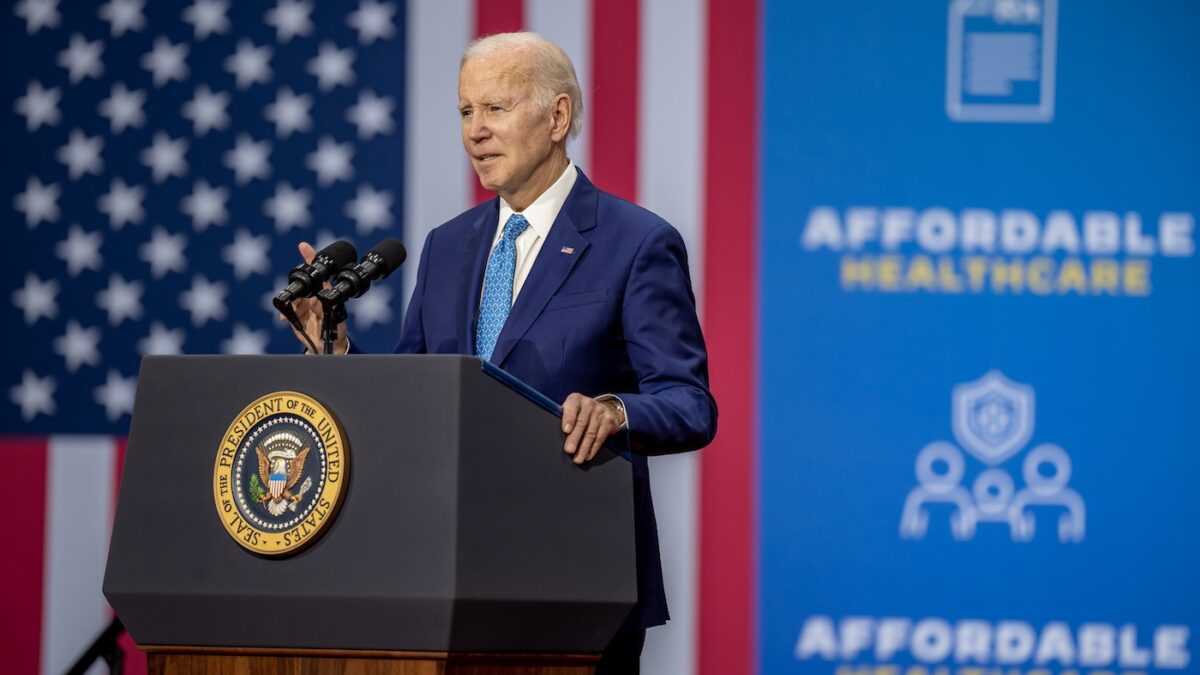
While most of Washington remains consumed on the drama surrounding immigration negotiations, leaders in the House have quietly pursued other policy objectives. According to multiple sources on Capitol Hill, House leaders, particularly Speaker Paul Ryan (R-WI), have concocted a plan that would 1) use a budget gimmick that arguably violates the law to 2) bail out Obamacare and 3) provide taxpayer funding to plans that cover abortion.
As a certain congressman from Wisconsin said back in 2012: “With allies like that, who needs the Left?”
Budgetary Smoke and Mirrors
Ryan obliquely alluded to the plan in a recent interview, discussing a “bipartisan opportunity” to implement policies like reinsurance. Ryan’s recent positioning has led Sen. Susan Collins (R-ME) to conclude that Congress would enact such a “stabilization” package in an appropriations measure.
In a nutshell, the gimmick under consideration would have the Congressional Budget Office (CBO) raise the budgetary baseline so Congress can lower the baseline and spend the artificial “savings.” It’s a Ponzi scheme of the first order, the kind of thing Bernie Madoff would have been proud of. Here’s how it would work.
Congress would direct CBO to assume that Obamacare’s cost-sharing reductions (CSRs) would not be paid. While the Trump administration did cut those subsidies off last October, due to the lack of a constitutional appropriation for them, the budget scorekeeping conventions (discussed in detail below) indicate that CBO should still assume the subsidies would continue. However, Congress would instruct CBO to override that precedent.
CBO would then increase the spending baseline for Obamacare, because of the interactions between CSRs and the law’s insurance premium subsidies. Essentially, eliminating the former would cause spending on the latter to rise, as insurers raise premiums to reflect the lack of CSR payments. (Under the law, insurers must reduce cost-sharing for low-income individuals regardless, so they would adjust premiums upward—as they did in most states for 2018—to reflect the cost of this regulatory mandate.) Higher premiums will lead to higher federal subsidies for those premiums, at $194 billion over a decade, according to an estimate CBO released last August.
After instructing CBO to assume that CSR funds would not be appropriated, Congress would then turn around and appropriate those funds, for a defined period of perhaps two years. Having permanently increased the spending baseline in step two above, CBO would then score a bill temporarily appropriating cost-sharing reductions as saving money for that defined period, because spending on CSRs would lower spending on premium subsidies—the opposite of the effect described above.
Congress would then take the “savings” from appropriating funds for CSRs—which, as explained above, consists not of legitimate deficit reduction so much as a phony gimmick derived from playing budgetary games—and spend that money on reinsurance and other corporate welfare payments to health insurers.
There you have it: A fiscal Ponzi scheme that would give health insurers their two major desires—cost-sharing reductions and reinsurance—in one big bailout. If it passes once for a two- or three-year period, you can bet your life this scheme would turn into an Obamacare perpetual bailout machine, with insurers coming back time and time again for more crony capitalist cash.
Violates Budgeting Principles
This plan not only violates the pretense that Republicans care about repealing—as opposed to bailing out—Obamacare, but it also violates budget scorekeeping principles laid out in statute. Specifically, Section 257(b)(1) of the Balanced Budget and Emergency Deficit Control Act of 1985 (the Gramm-Rudman-Hollings statute) includes the following direction when developing the budgetary baseline: “Laws providing or creating direct spending and receipts are assumed to operate in the manner specified in those laws for each year and funding for entitlement authority is assumed to be adequate to make all payments required by those laws” (emphasis mine).
Section 1402(c)(3)(A) of Obamacare includes such entitlement authority. It states that the secretary of the U.S. Department of Health and Human Services (HHS) “shall make periodic and timely payments” to health insurers for cost-sharing reductions (emphasis mine).
Granted, the law does not include an appropriation for HHS to make those payments. That lack of appropriation prompted the House of Representatives to sue the Obama administration for exceeding its constitutional authority, and caused the Trump administration to stop the payments last fall.
But whether an appropriation actually exists is immaterial to the separate and distinct question of whether the law requires the secretary to make payments. Obamacare includes such entitlement authority over CSRs. Therefore, under the Gramm-Rudman-Hollings Act, the budget baseline should assume that those cost-sharing reductions will be paid.
In its August 2017 report on CSRs, CBO agreed. In a section regarding the budgetary treatment of the cost-sharing payments, the budget analysts noted that “the agencies have recorded the CSR payments as direct spending (that is, spending that does not require appropriation action)—a conclusion reached because the cost-sharing subsidies were viewed as a form of entitlement authority” (parentheses in original; italics mine).
CBO provides a very clear response to the argument that because the Trump administration stopped the payments, the budgetary baseline should not score CSRs as “direct spending.” In reality, the entitlement authority—the underlying language of Section 1402(c)(3)(A) of Obamacare—prompted CBO to score the cost-sharing reductions as direct spending in the first place.
All budgetary scorekeepers—both CBO and the Office of Management and Budget—have never disputed the validity of the entitlement, as opposed to the separate and distinct legal question of whether a valid appropriation exists. That entitlement language remains unchanged; therefore, the budgetary treatment of CSRs should remain unchanged—unless Republican leaders attempt to strong-arm CBO as an accomplice to their scheme for bailing out Obamacare.
Dropping Principles and Promises to Win An Election
After reading all this, some may wonder why Republican congressional leaders have taken the time to concoct such a scheme. In part because Congress (wrongly) repealed only the individual mandate as part of the tax reform bill, members worry about big premium spikes as a result of their actions, which will hit right around the time of the midterm elections this fall. Just as Senate staff talked openly last summer about how they structured their “stability funds” to yield premium reductions in November 2018, House leaders now want to “stabilize” the insurance markets this fall.
Or, to put it more cynically, they value preserving power more than they do their principles. Make no mistake, this plot would violate just about every principle conservatives hold dear. It makes no attempt to repeal Obamacare. Instead, it strengthens and entrenches it. It relies on budgetary smoke-and-mirrors to raise federal spending—a gimmick so laughable that it would destroy any credible claim Ryan could make toward fiscal responsibility and honest budgeting. It would also increase taxpayer funding of plans that cover abortion, because Democrats will never agree to this scheme if it includes robust pro-life protections in law, as doing so would effectively prohibit exchange plans from covering abortion.
Back in 2012, when former House Speaker Newt Gingrich attacked conservative proposals to reform Medicare, Ryan famously asked, “With allies like that, who needs the Left?” Six years later, given the shady nature of the Republican leadership scheme to bail out Obamacare, some may be saying the same thing about him.
Mr. Jacobs is founder and CEO of Juniper Research Group, a policy consulting firm. He is on Twitter: @chrisjacobsHC.









